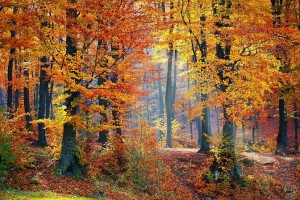 Forests are not just beautiful spaces in which to walk or have a picnic; they are vital to climate, water, livelihoods and health as well.
Forests are not just beautiful spaces in which to walk or have a picnic; they are vital to climate, water, livelihoods and health as well.
Around 1.4 billion people derive direct and indirect benefits from forests via forest products, jobs, and various other contributions to incomes and livelihoods. Also, approximately 350 million individuals, around 50% of who are indigenous, live in or near to dense forests and rely virtually entirely on those forests for their subsistence. A couple of million more, including those living in cities, also depend on forests for construction materials, energy sources, and food.
Forests contribute to job creation and wealth generation, especially since there is a growing demand for forest products that support low carbon development. There is an ongoing effort to ensure the sustainable use of forest resources and to improve livelihoods and build resilience to climate change.
Forests are not only an important source of both seasonal and permanent employment in many communities, but also important for beekeeping, livestock grazing areas, fuel wood, berry and mushroom collecting, and recreational purposes.
Forests are also vital to combat climate change because they regulate water flows, absorb greenhouse gases, and protect coastal communities from natural catastrophes and rising sea levels. They also provide species routes to resilient habitats for migrating animal and plant species.
What is possibly most important though is that forests are essential to global freshwater resources; approximately 1.8 billion people across the globe will face water scarcity by 2025, and the number of individuals who will face water stressed conditions will be even higher. Around 75% of all our freshwater comes from forested catchment areas, and if we do not look after our forests our future water shortages will be even worse.
According to Manoel Sobral Filho, Director of the UN Forum on Forests Secretariat, The protection and restoration of forest watersheds and catchments is not just climate-smart, it is a cost-effective and green alternative to new infrastructure development for water purification. Forests are the planet’s natural water towers.
Forests are home to the most diverse biotic communities, most important of which is aquatic biomes, because their medium, water, is vital to life – ours and all other species on the planet. Freshwater biomes supply us with water for crop irrigation and our drinking water.
Wetlands and forested watersheds filter and clean our water and also influence how and where rain falls. The destruction of our forests may cause large-scale changes in global climate-change, influencing which areas do and do not get rain, and by extension how much drinking water you and I have at our disposal.
Get bottled water coolers and main water dispensers from Living-Water. Buy water coolers and rent a water cooler in London.





